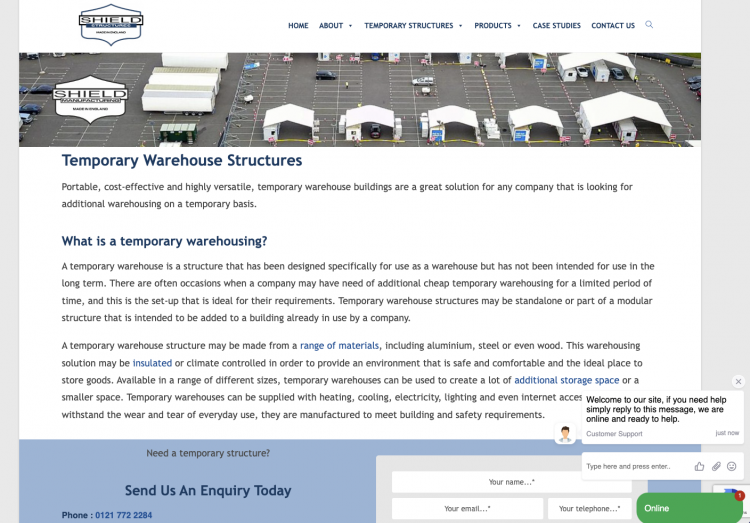In today’s dynamic business landscape, adaptability is key to success. As companies evolve and expand, the need for flexible infrastructure becomes increasingly apparent. Temporary warehouse buildings offer a versatile solution to meet the ever-changing demands of businesses across various industries.
Meeting Growing Needs
As businesses experience growth or seasonal fluctuations, the demand for additional storage space can fluctuate dramatically. Traditional warehouse construction projects can be time-consuming and costly, often posing logistical challenges. Temporary warehouse buildings provide a practical alternative, offering quick deployment and scalability to accommodate changing storage requirements. Whether it’s storing excess inventory during peak seasons or expanding operations into new markets, these structures offer a cost-effective and efficient solution.
Flexibility in Design and Functionality
One of the key advantages of temporary warehouse buildings is their flexibility in design and functionality. These structures can be tailored to meet specific needs, whether it’s a short-term storage solution or a semi-permanent facility. From simple storage tents to fully insulated structures with HVAC systems, the options are virtually limitless. Additionally, modular construction allows for easy customization and expansion as business needs evolve over time. This adaptability ensures that companies can optimize their warehouse space according to current requirements without being locked into long-term commitments.
Rapid Deployment
Time is of the essence in today’s fast-paced business environment. Temporary warehouse buildings offer rapid deployment, allowing companies to address urgent storage needs without delay. Unlike traditional construction projects, which can take months to complete, these structures can be installed in a matter of days or weeks, minimizing downtime and maximizing operational efficiency. Whether it’s responding to sudden spikes in demand or setting up temporary facilities for special events, businesses can rely on the speed and convenience of temporary warehouse solutions.
Cost-Effectiveness
In addition to their flexibility and speed of deployment, temporary warehouse buildings offer significant cost savings compared to permanent structures. Traditional construction projects involve hefty upfront investments in materials, labor, and permits, not to mention ongoing maintenance costs. In contrast, temporary warehouse solutions require lower initial capital outlay and can be leased or rented on a short-term basis, allowing businesses to allocate resources more efficiently. Furthermore, the modular nature of these structures means that they can be easily dismantled and relocated as needed, minimizing waste and maximizing ROI.
Environmental Sustainability
Sustainability is becoming an increasingly important consideration for businesses worldwide. Temporary warehouse buildings offer environmental benefits compared to traditional construction methods. Modular construction minimizes waste and reduces the environmental impact associated with material extraction and transportation. Additionally, the ability to reuse and repurpose these structures makes them a more sustainable alternative to permanent buildings. By embracing temporary warehouse solutions, companies can reduce their carbon footprint and contribute to a more environmentally friendly future.
In an era of rapid change and uncertainty, businesses must remain agile and adaptable to stay ahead of the curve. Temporary warehouse buildings provide a flexible and cost-effective solution to address evolving storage needs while maximizing efficiency and sustainability. Whether it’s a short-term storage solution or a semi-permanent facility, these structures offer the versatility and scalability required to support the growth and success of modern businesses.









